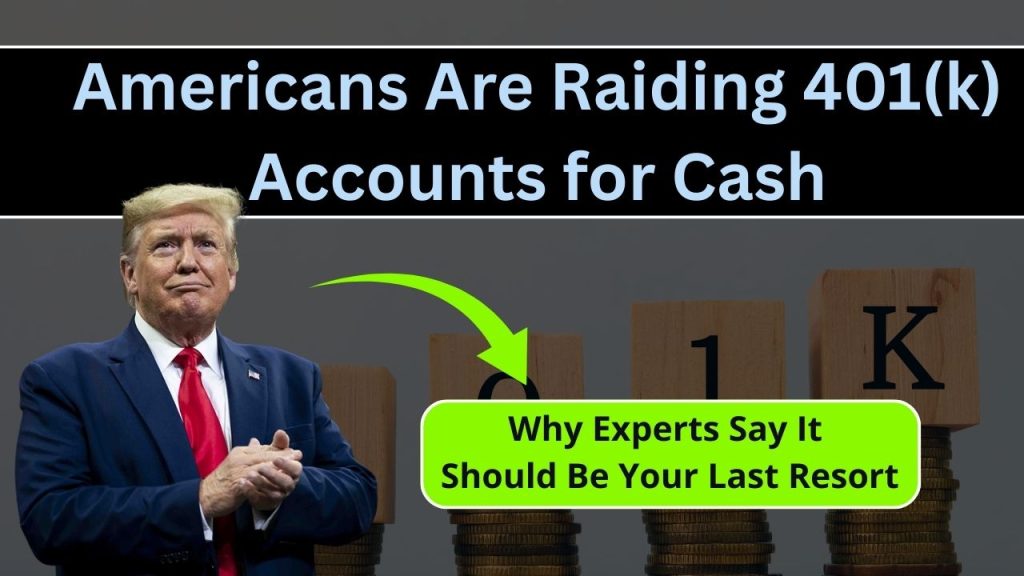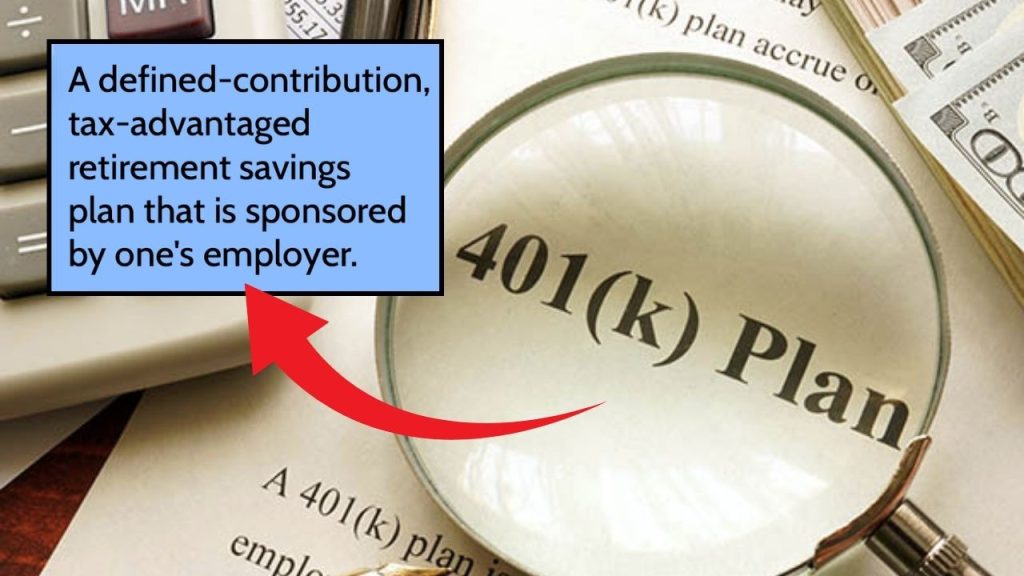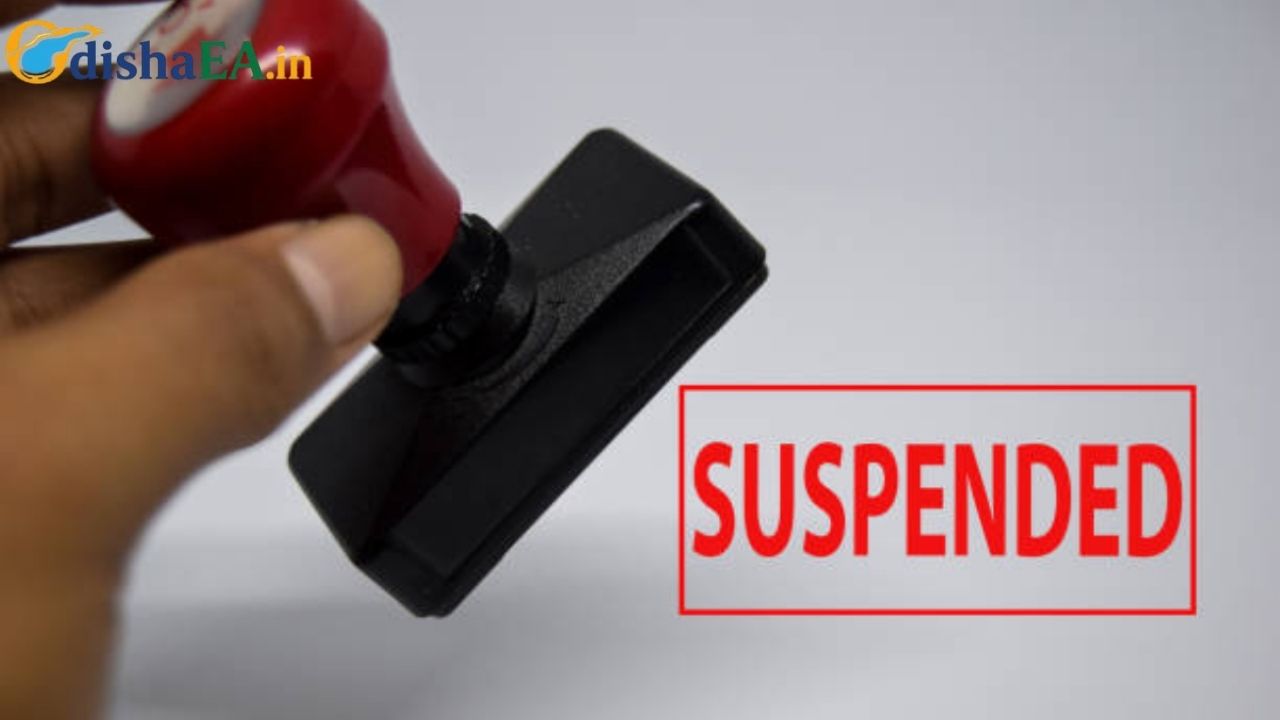In recent times, many Americans have been raiding their 401(k) accounts for cash. Whether it’s to manage unexpected expenses like medical bills, mortgage payments, or other emergencies, dipping into retirement savings can seem like an easy fix. However, financial experts consistently warn that using your 401(k) savings early should be considered a last resort. This article will explain why, provide practical advice, and help you understand the long-term impact of cashing out your retirement funds prematurely.

Understanding this topic is important because your 401(k) is more than just a savings stash—it’s designed to help secure your financial future after you stop working. Accessing these funds too early has immediate consequences, from taxes and penalties to losing out on future growth. This comprehensive guide will break down everything you need to know about 401(k) withdrawals in clear, easy-to-understand language that professionals and everyday savers alike can benefit from.
Americans Are Raiding 401(k) Accounts for Cash
| Topic | Details |
|---|---|
| Early Withdrawal Penalty | 10% penalty if withdrawn before age 59½, except for some emergencies |
| Income Taxes | Early withdrawals are taxed as ordinary income |
| New Emergency Withdrawal | Up to $1,000 per year penalty-free withdrawal for personal emergencies under SECURE 2.0 Act |
| Rule of 55 Exception | Allows penalty-free 401(k) withdrawals if you leave your job at age 55 or older |
| Lost Growth Opportunity | Early withdrawals miss out on years of potential compound interest growth |
| Official IRS Resource | IRS 401(k) Plans Overview |
Raiding your 401(k) for cash can be tempting when financial emergencies arise, but experts warn this should be a last resort. Early withdrawals come with heavy penalties, taxes, and long-term consequences that can severely hurt your retirement goals. New laws like the SECURE 2.0 Act provide some relief for emergencies, but careful planning is crucial.
Before withdrawing, explore all alternatives, including loans and professional advice, to protect your future financial security. Remember, your 401(k) is your ticket to a comfortable retirement—handle it with care.
What Is a 401(k) and Why Is It Important?
A 401(k) is a retirement savings account sponsored by employers that allows employees to save and invest part of their paycheck before taxes are taken out. This helps money grow tax-deferred until retirement. Employers often match contributions, making it a powerful way to build a nest egg.
The goal is to accumulate enough to cover living expenses comfortably after leaving the workforce. The power of a 401(k) lies in compound growth—earning returns not only on your contributions but also on the earnings themselves over time.

Why Are Americans Raiding Their 401(k) Accounts?
Recent trends show more Americans are withdrawing funds from their 401(k) accounts earlier than recommended. According to data from Vanguard, early withdrawals reached an all-time high of 3.6% in 2024, up from 2.8% the previous year, affecting approximately 5 million accounts (Kiplinger, 2024).
Life happens, and sometimes urgent financial needs arise:
- Medical bills
- Mortgage or rent payments to avoid eviction
- Emergency home repairs
- Sudden job loss or reduced income
Pulled by immediate needs, many view tapping into retirement savings as a quick cash solution.
Why Experts Advise Against Early Withdrawals
While it might seem convenient, using your 401(k) early imposes multiple disadvantages:
1. Taxes and Penalties
Withdrawals before age 59½ generally trigger a 10% early withdrawal penalty on top of regular income taxes. So, if you take out $10,000, you may owe $1,000 in penalties plus taxes on the full amount, significantly diminishing what you get to keep (IRS, 2025).
However, exceptions exist. The IRS allows penalty-free withdrawals for:
- Permanent disability
- Medical expenses exceeding 7.5% of adjusted gross income
- Separation from employment after age 55 (Rule of 55)
- Certain emergencies enabled by the SECURE 2.0 Act including financial emergencies, victims of domestic abuse, and natural disasters (Turbotax, 2025).
2. Lost Growth Potential
Money withdrawn early no longer benefits from compounding interest, which can drastically reduce your retirement fund’s size over decades. Even small withdrawals today could result in a large financial gap in retirement.
For example, withdrawing $10,000 at age 30 could cost you nearly $38,000 at retirement age when factoring in compound growth (assuming an average 7% annual return) (Investopedia, 2022).
3. Missed Employer Matches
Some 401(k) plans suspend employer matching contributions if you take hardship withdrawals, further reducing your overall savings (Voya, 2025).
4. Increased Financial Stress Later
Early withdrawals can force individuals to work longer, delay retirement, or settle for less comfortable retirements due to depleted funds.
New Rules and Exceptions: What’s Changed in 2024-2025?
The SECURE 2.0 Act, passed recently, introduced some relief for emergencies:
- You can withdraw up to $1,000 once a year penalty-free for personal emergencies but will still owe income tax.
- Victims of domestic abuse can withdraw up to $10,000 without penalty.
- Those in declared disaster areas have increased withdrawal limits.
- Long-term care insurance premiums can be covered with penalty-free distributions starting late 2025 (Kiplinger, 2024).
These changes provide flexibility but should still be used cautiously.
The Rule of 55: A Penalty-Free Withdrawal Option
If you leave your job during or after the year you turn 55, you may withdraw from your 401(k) from that employer without the 10% penalty, though taxes still apply. This is known as the Rule of 55.
Important points about this rule:
- It applies only to the 401(k) plan of the job you left.
- Money rolled over into an IRA won’t qualify.
- It’s helpful for those retiring early or facing job changes after age 55 (Charles Schwab, 2025).
Steps to Take Before Raiding Your 401(k)
1. Explore Other Financial Options First
- Personal loans or home equity lines of credit may have lower interest rates.
- Budget adjustments or negotiating bills.
- Emergency savings or other liquid investments.
2. Consider a 401(k) Loan Instead
Some plans allow borrowing from your 401(k) without taxes or penalties if repaid on schedule. Although the loan reduces take-home pay, you avoid penalties and keep your fund growing.
3. Consult a Financial Advisor
A professional can help weigh the tax consequences, calculate impact on retirement, and suggest better alternatives.
4. Use Withdrawal Exceptions Carefully
Only use hardship or emergency withdrawals if you truly meet the criteria and understand the tax consequences.
401(k) Millionaires Are Surging in 2025 — Here’s How Savers Are Hitting the Jackpot
Trump Opens Door to Crypto in 401(k)s — What It Means for Your Retirement
Seniors at Risk of Outliving Savings in 41 States – Is Yours on the List?
FAQs About Americans Are Raiding 401(k) Accounts for Cash
Q1: Can I withdraw from my 401(k) anytime?
Yes, but if you withdraw before age 59½, you generally face a 10% penalty and owe income tax on the amount withdrawn, except for certain exceptions.
Q2: What are the exceptions to the early withdrawal penalty?
Permanent disability, certain medical expenses, separation from service after age 55, financial emergencies under SECURE 2.0, and other IRS-approved exceptions.
Q3: How much tax will I pay on my 401(k) withdrawal?
Withdrawals count as ordinary income, so your tax depends on your current tax bracket.
Q4: What alternatives do I have instead of withdrawing?
Take a loan from your 401(k), personal loans, emergency savings, or negotiate bills before considering withdrawal.
Q5: Can I use the Rule of 55 if I am under 59½?
Yes, if you leave your job during or after the year you turn 55, you may withdraw penalty-free from that employer’s 401(k).






